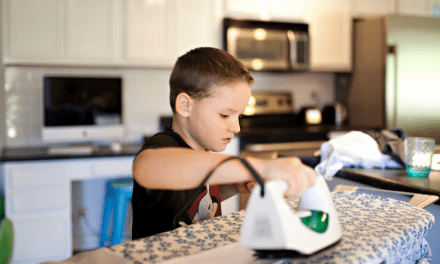A good portion of our struggles in life evolve from our efforts to control what we do not control. In the world of parenting, this is particularly true. Let me demonstrate.
- “I told you to stop. Now I mean it… STOP THAT NOW.”
- “Leave your sister alone.”
- “Eat those veggies. I don’t care… eat your veggies!”
- “How many times have I told you to get out your homework! Do it now!”
- “Stop whining! You do it every day and I am sick of it.”
Notice what keeps happening in each of these situations. Whether mom or dad, the voice speaking is trying to ‘force’ something to happen. The words used imply that the adult has ‘control’ over the child. Early on in life, this usually works (with most compliant toddlers). Even then, there are those strong-willed toddlers who refuse to listen seemingly from day one!
For most of us, the scenario is one where the child gradually becomes more resistant to such controlling language, and by those teenage years, we feel as if we have no control or at least, little control. We can’t get them to clear their room, brush their teeth or apply themselves to their homework. Our words seem to have little effect!
Reality Check: We Do Not Have ‘Control’ Over Our Children
It’s useful to start with a reality-based perspective, and build a parenting model from there. Thus, it’s critical to realize that we do not have ‘control’ over children. When we use our words in this controlling manner however, we pretend as if we do. Over time, when these (false) words begin to fail us, many become upset, angry and start repeating the same controlling words, only louder! It still doesn’t work. (It just makes mom or dad look a bit insane.)
Why is this? Because we have stepped out of our realm of control, and are (somewhat lazily) trying to get words to have an effect… that only action will have. Please understand this, as it is critically important.
Words Get Your More Words. Better Behavior Gets Better Behavior.
When we use these controlling methods, we are thinking our words should get them to take action. But it does not. The use of lots of words usually produces lots of words back in our face. We get kids who argue! Why? Because we argue! We get kids who negotiate. Why? Because we negotiate. We get kids who ‘have to have the final word.’ Why? Because WE must have the final word.
Just remember: More words will get you more words back. You need a better action plan…a better behavior plan. Not better words.
Turn Your Focus Toward What You Can Control
The key here is to abandon trying to control the uncontrollable (your child). In this way, you stop trying to fix or change this moment, and you can begin to teach. Teaching better behavior is your goal. Not trying to immediately control the bad behavior. Teaching takes time however, and patience. We will need both.
And you can teach! Even the most challenging child will begin to learn to behave better, once you shift your focus and start to control the controllable. What is controllable?
a. You can control yourself.
This requires some discipline for some, to quell those reactive tendencies, but self-control is essential if you plan on teaching your child self-control. With this, you abandon all those reactive moments and realize that you don’t have to yell, push, prod, encourage or fight and negotiate. You can walk away, and be at peace…even if they are not.
If you can model self-control, and give up the controlling language, you will quickly find that your relationship becomes more easeful and healthier. You may not get the behavior you want, but this portion will allow you to have a quality relationship with your son or daughter.
b. You can control everything your child cares about.
This is the true magic, to turn your focus to where you have leverage. Leverage is key. It makes the world go around, and if you fail to use it well at home, life will often be a challenge. The ongoing, silent and consistent use of leverage is your secret to getting cooperation daily from even the most challenging child.
Abandon the Insanity and Join Reality
This article is about joining reality, and then noticing how easily you can regain control of your home. This is decidedly different than controlling your children. When standing firm, you do not use your words to keep repeating the same old stuff over and over. Instead, you focus your attention on the variables you can control, and you act accordingly. With a solid plan, you will that life can quickly improve, and your children will rapidly learn better behaviors and habits!














